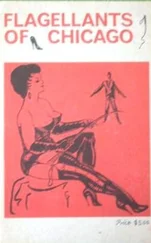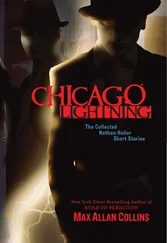But he was driven by a mysterious, resentful energy, so he didn’t reduce his speed until he got to Oakland, where he slowed down to remember the way. The neighborhood looked different during the day: the streets were empty, as if they had been abandoned. Graffiti in black and red was sprayed on the walls. Ra’fat parked the car in the parking lot where he had been robbed. As soon as they got out of the car they stood in front of Catherine, the counselor, as if they were players receiving the coach’s instructions before the game. Catherine, maintaining her calm smile, said, “Please, Ra’fat, wait in the car. Last time you saw Sarah, you had a fight. We don’t want to provoke her negative feelings. Unfortunately addicts tend to be irascible. Stay here, and after we talk with her for a little bit, we’ll ask her if she would like to see you.”
Ra’fat acquiesced. He bowed his head and moved one step away as Catherine resumed her instructions to the team. “The most important thing we should convey to Sarah is that we love her: no pity and no sermons. Remember that well. It’s quite possible that we’ll find her in a condition that we don’t like. She might receive us badly or be hostile. She might even kick us out. Prepare yourselves for the worst possibility. The young lady we will see in a few moments is not the Sarah that we know. Now she is an addict. This is the truth we should not forget.”
They listened to her in silence, but Sylvia suddenly cried in a hoarse voice that sounded strange, “Oh, Jesus, save poor Sarah,” then started to sob. Michelle hugged her. The counselor’s voice came calm and firm this time. “Sylvia, get a grip on yourself. We have to convey to her our positive feelings. If you cannot stop crying, it’d be best if you stayed in the car with Ra’fat.”
Ra’fat backed off slowly, opened the car, and sat behind the steering wheel while the rest of the team proceeded toward the house: Jesse holding the little puppy and Sylvia carrying the apple and banana pie. They walked slowly toward the house as if in a funeral procession. They found the garden gate open and the outside lights on even though it was daylight. They climbed the front stairs and Michelle rang the bell. A whole minute passed and no one opened. She rang again. After another minute the door opened and a large black man, wearing a blue workman’s suit, appeared. Michelle said, “Good morning. Is Sarah here?”
“Who?”
“Pardon me. Isn’t this Jeff Anderson and Sarah Thabit’s house?”
“I believe those are the names of the tenants who moved.”
“Did they move?”
“Yes, a few days ago. The landlord sent me over to paint the house. I think he’s renting it to a new tenant.”
They remained silent for a moment, then Michelle said, “I’m Sarah’s mom. I’ve come to check on her with these friends of hers. Do you have her new address?”
“Sorry, ma’am, I don’t know it.”
* * *
“Even if you are an official at the Egyptian embassy, that doesn’t give you the right to break into my house,” I shouted. He looked at me defiantly and moved one step to the center of the living room,
taking his time as if affirming his control of the situation.
“I’ve invited myself to a cup of coffee with you. Listen, Nagi, you have a superior academic record, you’re intelligent, and you have a great future ahead of you.”
“What exactly do you want?”
“I want to help you.”
“What makes you want to do that?”
“My fear for you.”
“Fear of what?”
“Your stupidity.”
“Watch your words.”
“You’ve come to America to get an education, and instead of looking after your future, you’ve brought a catastrophe upon yourself.”
“What do you mean?”
“You’re collecting signatures on a statement against our revered president. Aren’t you ashamed of yourself?”
“I’m proud of what I’m doing.”
“The problem with intellectuals like you is that you are prison ers of books and theories. You don’t know anything about what really happens in your country. I’ve worked as a police officer for ten years in different governorates, in villages, hamlets, and alleys. I’ve come to know the lower depths of Egyptian society. I can assure you that Egyptians are not concerned with democracy at all. Besides, they are not cut out for it. Egyptians are concerned about three things only: their religion, their livelihood, and their children. And religion is the most important; the only thing that pushes Egyptians to revolt is when someone attacks their religion. When Napoleon came to Egypt and pretended to respect Islam, Egyptians supported him and forgot that he was an occupier.”
“It seems you haven’t read your history. Egyptians revolted against the French expedition twice within a three-year period and they killed the commander.”
He looked at me angrily. I felt some comfort in having insulted him. He went on in an arrogant tone of voice, “I don’t have time to waste with you. I wanted to help you but you insist on your stupidity. One thing you can be sure of is: that statement for which you are gathering signatures is just child’s play.”
“If it was just child’s play, then why did you take the trouble of coming here?”
“You’re playing with fire.”
“Are you threatening me?”
“I am just warning you. If you don’t give up on this statement, you cannot imagine what I’ll do to you.”
“Do your worst,” I shouted, having got over the surprise. For the first time, it occurred to me to kick him out. He moved, backing off a few steps toward the door, saying, “You are plowing the sea. Do you think you’ll embarrass the regime in front of the Americans? I assure you the regime is as solid as a mountain and organically connected to the American establishment. Everything you’ve written in the statement is well known to the Americans and they couldn’t care less, so long as the Egyptian regime is looking after their interests.”
“So, you admit that the Egyptian regime is just a servant of the Americans.”
“I warn you for the last time. You’re mistaken to think that being in America will protect you from punishment. Come back to your senses, Nagi, if not for your own future then for the sake of your mother, who has toiled for years for you, and for your sister Noha, the student in the College of Economics and Political Science. She is a tender girl and would not withstand one night of detention at State Security. The officers there are lowlifes and they love women.”
“Get out of here.”
“You will pay dearly. You’ll discover how we can teach you manners, but it will be too late.” He said the last few words as he opened the door, then he suddenly turned toward me and said, “By the way, greetings to your Jewish beloved, Wendy. I’ve received videos of the two of you having sex. Thank you. They are very enjoyable.”
He let out a loud laugh then closed the door and disappeared. I collapsed on the nearest chair. I couldn’t describe how I felt at that moment. It was a mixture of shock, anger, and humiliation. I opened a bottle of wine and lit a cigarette and began to smoke and drink. How did Safwat get a copy of the statement? How did he come to know everything about me? More seriously: How did he enter the apartment? I got up and opened the door and examined it carefully. I found no sign of forced entry. He had used a copy of the key. Where did he get it from? There must be some kind of cooperation between Egyptian intelligence and the university administration. I should change residence at the earliest opportunity. I could cut down on my expenses to afford off-campus housing. I was possessed by a strange desire, so I got up and went to the bedroom, turned on the lights, and began to examine the walls, as if I were going to find the secret camera that had filmed Wendy and me. In a short while I laughed at myself, turned off the lights, and went back to the living room. I soon heard the sound of a key turning in the door. I got up, ready for a confrontation, but I saw Wendy, who said, smiling as soon as she saw me, “Hello. How are you?”
Читать дальше
Конец ознакомительного отрывка
Купить книгу












